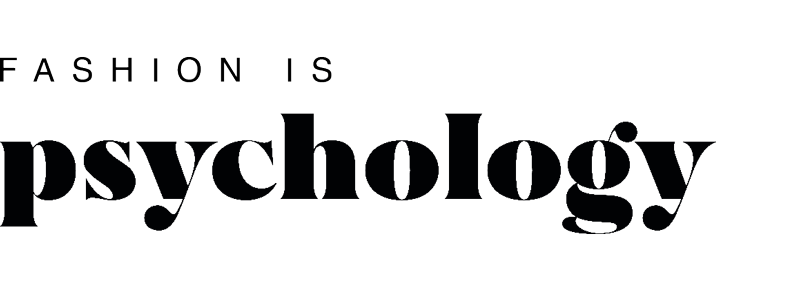My journey into the field of Fashion Psychology officially began when I was accepted into the master’s programme at the University of the Arts London: London College of Fashion (LCF) in 2014. Since graduating and founding Fashion is Psychology™, I have been inundated with questions about the course, mostly from people unsure if they have the right background to be accepted. Luckily, I have RELAUNCHED my series of brand-new Online Courses in Fashion Psychology, some of the most affordable and in-depth courses on the market!
Not only have we made it more accessible and affordable, we’ve made everything easier!
Now, you don’t have to buy all the modules at once; you can pick and choose the courses YOU’RE most interested in, learn at your own pace and pay over time.
AND as a special thank you to our subscribers, we are offering the FIRST 10 students a 10% discount with the code BIGDRESSENERGY
What’s in store:
Each course offers a comprehensive journey into the fascinating world of fashion psychology in an easy, fun and impactful way! Explore the psychological principles behind our fashion choices, discover why we’re drawn to certain brands, unlock the deeper meaning behind our style, and so much more.
Watch our how-to guide to see just how simple it is to use: https://www.youtube.com/watch?v=O-VNJaF8k5Q&feature=youtu.be
What courses are available?
Fashion psychology and identity:
The “Fashion Psychology and Identity” course provides an insightful journey into the history and principles of fashion psychology, emphasizing how clothing shapes personal identity and social roles. Through three comprehensive lessons, you will explore the profound influence of fashion on well-being and its role in sociopolitical and cultural movements.
- The role of fashion in shaping our self and Social Identity
- The role of fashion and clothing in wellbeing
- The role of fashion in sociopolitical and cultural movements
Consumer Psychology
The “Consumer Psychology” course offers an in-depth exploration of the mental processes influencing purchasing decisions. Across three comprehensive lessons, you will gain insights into the psychology of consumer behaviour and the various tactics retailers employ to encourage purchases. You will also learn how to leverage scientific research to make informed shopping decisions and understand the psychological principles behind the concept of retail therapy. This course is designed to equip you with the knowledge to become a savvy consumer and comprehend consumer psychology’s intricacies from both a personal and professional perspective.
- Why we buy
- The psychology of retail environments
- How to shop smartly
Design thinking
“Design Thinking” is an innovative course that explores the intersection of creativity, psychology, and fashion. This course introduces you to design thinking principles and how they can be applied to fashion design to create good styles and promote mental well-being. You will learn about the psychological aspects of creativity, the impact of aesthetics on mental health, and how to develop fashion pieces that enhance the wearer’s psychological and emotional state. Through a combination of theoretical insights and practical applications, this course will equip you with the knowledge and skills to revolutionize the fashion industry with psychologically informed design.
- The Psychology of Fashion Design and Creativity
- Mental health in the fashion industry
- The relationship between fashion design and wellbeing
Style Psychology
Style Psychology is an immersive course to explore the fascinating intersection of psychology and personal style. This course delves into how clothing choices influence our emotions, perceptions, and interactions with the world. Through a blend of theory and practical application, students will understand how personal style can be a powerful tool for self-expression and personal development.
- Colour psychology for everyday
- Enclothed cognition and personal style
- Body image and personal style
Fashion Psychology and Sustainability (Dropping soon)
This course explores the intersection of fashion psychology and sustainability, delving into how psychological principles influence fashion choices and how these choices impact the environment. You will learn different methods to reduce the attitude-behaviour gap regarding overconsumption and how to change how we approach sustainability to become a learned behaviour.
- The Psychology of Sustainability
- Understanding fashion psychology and sustainable behaviours
OR you can take our supersized course option and get all of these modules at a cheaper rate.
“Absolutely loved this module and its insights. Can’t wait to apply to myself and my clients wardrobes and interiors!”
“I have really enjoyed content of the course”
Whether you’re a fashion enthusiast, a psychology buff, or are intrigued by the power of personal expression, join us as we uncover the secrets behind the clothes we wear and the minds that create them.
To find out more about the benefits of our courses, check out the main course page.
Each course has an FAQ section, but for any other burning questions, email us at admin@psychologyoffashion.co.uk
HAPPY LEARNING!




What does the job consist of, studying to be a fashion psychologist? Also what category of the job where you can decline or accept trends to move forward or to not move forward.
Hi Julia,
As the field of Fashion Psychology is so new the job of a Fashion Psychologist can differ greatly.
For me personally, I have consulted with brands on marketing campaigns, written articles for magazines, conducted research and have published a paper. It is what you make it! The job you described sounds like a trend forecaster. I hope that helps!
Can this be an online learning method Or do I have to be in school full time for this?
I’m working on an online learning method so stay tuned!
It’s online learning.
I got my B.S. in Psychology from the University of Texas back in May of this year- Do you think I might be able to pursue graduate level education in fashion psychology??
Hi Andrea,
We will be launching our own Fashion Psychology course soon. Make sure you sign up to the newsletter for more information.
I looking into fashion psychology B.S. Degree program and I am interest taking courses online. I live state of California. Please sent me fashion psychologist information thank you again.
We are re-launching a series of fashion psychology courses next week! Come back then and follow us on Instagram for a reminder